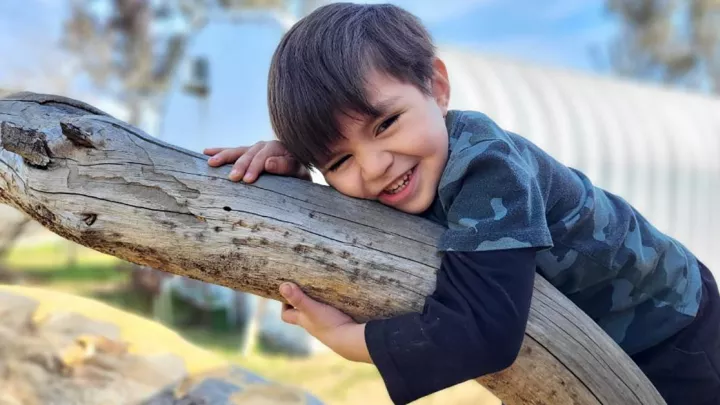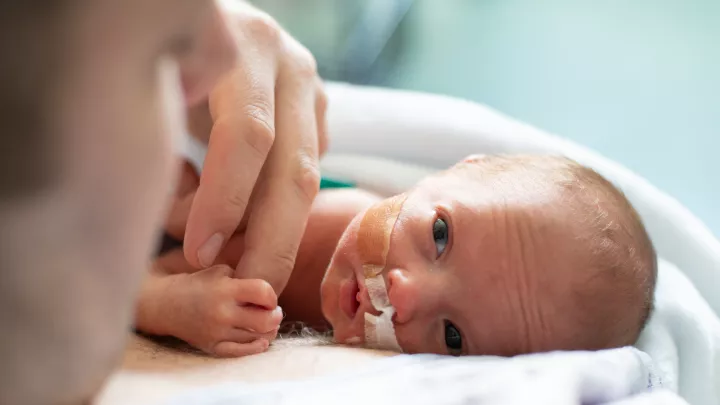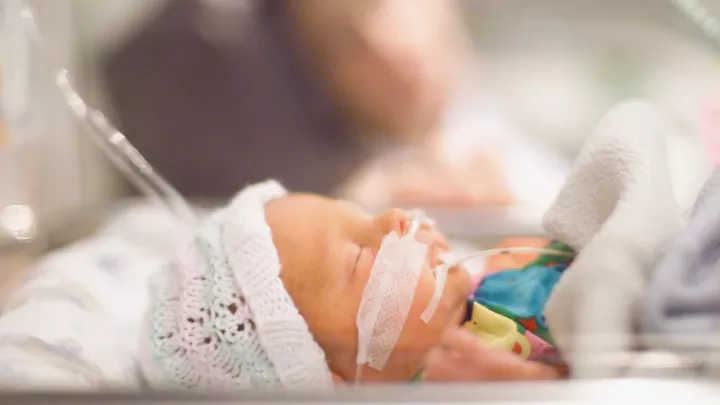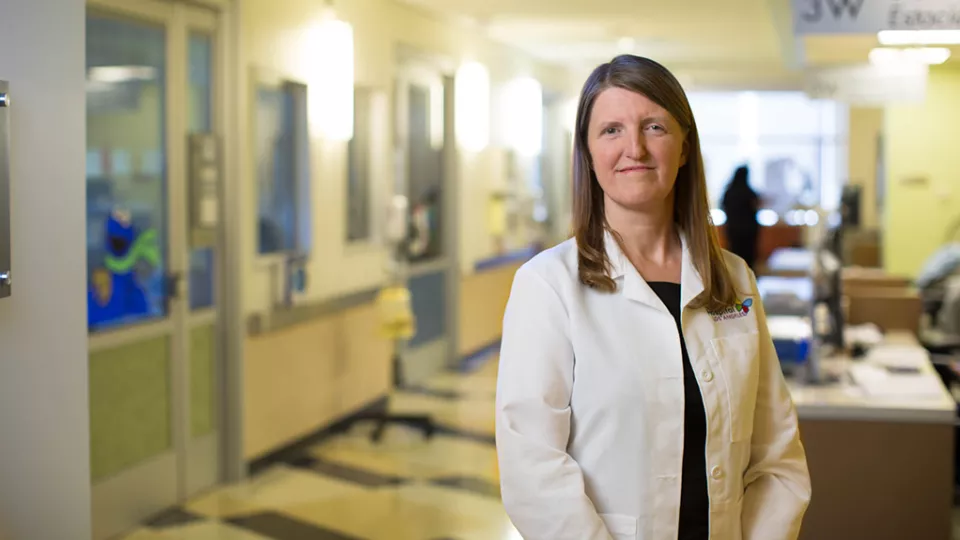
Rachel Chapman, MD
Neonatologist Travels to China to Share ECMO Experience
This spring, Rachel Chapman, MD, traveled to two cities in China to share expertise on one of the most complex lifesaving interventions for critically ill newborns: extracorporeal membrane oxygenation (ECMO).
Dr. Chapman, Associate Division Chief of Neonatology and Medical Director of the Newborn and Infant Critical Care Unit (NICCU) at Children’s Hospital Los Angeles, was invited to speak at two meetings: the National Conference of the Chinese Neonatologist Association, held March 24-26 in Beijing, and the Guangzhou Newborn and Infant ECMO International Forum, held March 31-April 2 in Guangzhou.
The Beijing talk focused on persistent pulmonary hypertension in neonates—a common reason newborns may require ECMO—while her Guangzhou lecture centered on the use of centrifugal ECMO for neonates with respiratory failure.
“Everyone was so welcoming and so eager to hear about our current approaches to care for these critically ill babies,” Dr. Chapman says. “I was very appreciative of the opportunity to speak in person and share the latest literature and our own hospital’s experience.”
Minimizing ECMO risks
The ECMO Program at Children’s Hospital Los Angeles is the largest program of its kind in California, providing lifesaving heart-lung support to more than 1,400 children since 1987. Led by Asavari Kamerkar, DO, it has been designated as a Gold Level Center of Excellence for ECMO treatment by the Extracorporeal Life Support Organization (ELSO).
CHLA was also among the first pediatric hospitals in the country to use centrifugal ECMO machines equipped with advanced artificial intelligence. The machines allow physicians to fine-tune ventilation to optimize blood flow to the brain, reduce hemolysis (the breakage of red cells) and improve clot risks.
“Centrifugal ECMO machines have many advantages, but they come with a very steep learning curve,” Dr. Chapman explains. “For neonates, the biggest concern is the risk of hemolysis because we need to use much smaller circuits and lower blood flows for these babies.”
In her Guangzhou lecture, she shared specialized management strategies that the CHLA team uses to watch for hemolysis—including monitoring of plasma hemoglobin levels, the most accurate method of assessing red cell breakdown in the blood vessels, and monitoring the color of the baby’s urine. She also detailed how the team works to minimize and address this complication if it occurs.
Meanwhile, her talk in Beijing focused on management strategies for persistent pulmonary hypertension in neonates—covering the etiologies and pathophysiology of this condition, as well as current treatment algorithms and when to consider ECMO for babies who do not respond to conventional therapies.
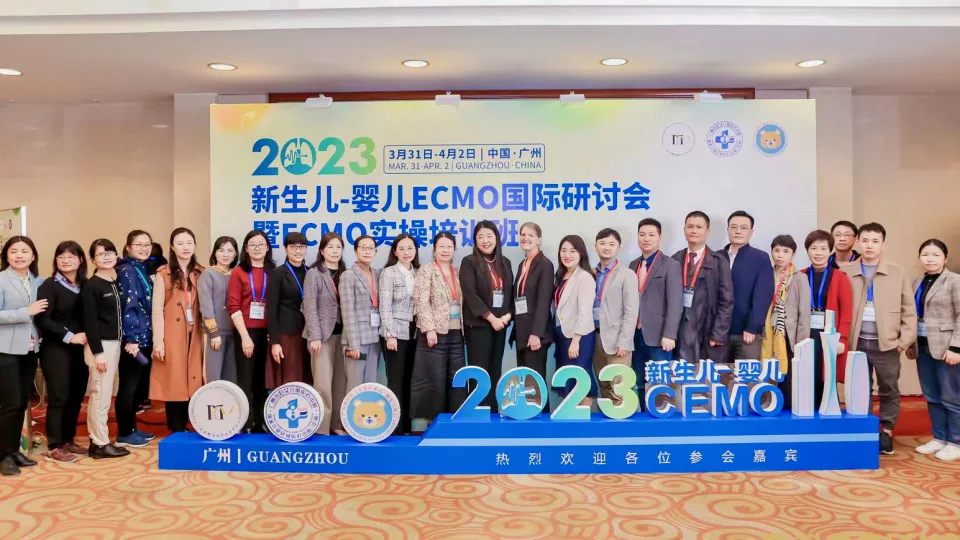
Photo courtesy of Huayan Zhang, MD, Guangzhou Children's Hospital
Visiting professorships
In addition to her conference lectures, Dr. Chapman served as a visiting professor at both Beijing Children’s Hospital and Guangzhou Children’s Hospital—meeting with faculty and trainees and participating in case discussions of neonates requiring ECMO, premature infants with pulmonary hypertension and babies with severe bronchopulmonary dysplasia (BPD).
At Guangzhou Children’s Hospital, she also shared CHLA’s experience with providing continuous renal replacement therapy for neonates on ECMO. CHLA is one of only a few pediatric hospitals in the U.S. to routinely utilize this form of kidney support to optimize nutrition and minimize fluid overloads for neonates on ECMO.
Dr. Chapman hopes to continue to collaborate with neonatologists in China through potential joint conferences, observerships and other opportunities.
One particularly memorable aspect of her trip was the chance to visit one of her former patients, who was born prematurely in California and transferred to Children’s Hospital Los Angeles for severe BPD and subglottic stenosis more than two years ago. The child is now doing well.
“The family found out I was coming, met me at the airport and arranged time for an opportunity to visit with their son, who was thriving, as well as share their ongoing gratitude for the comprehensive and patient- and family-centered care he received at CHLA,” Dr. Chapman says. “I feel very grateful for the chance to speak, to meet new colleagues and to learn about the cultures of both Beijing and Guangzhou, and I look forward to ongoing collaborations.”
